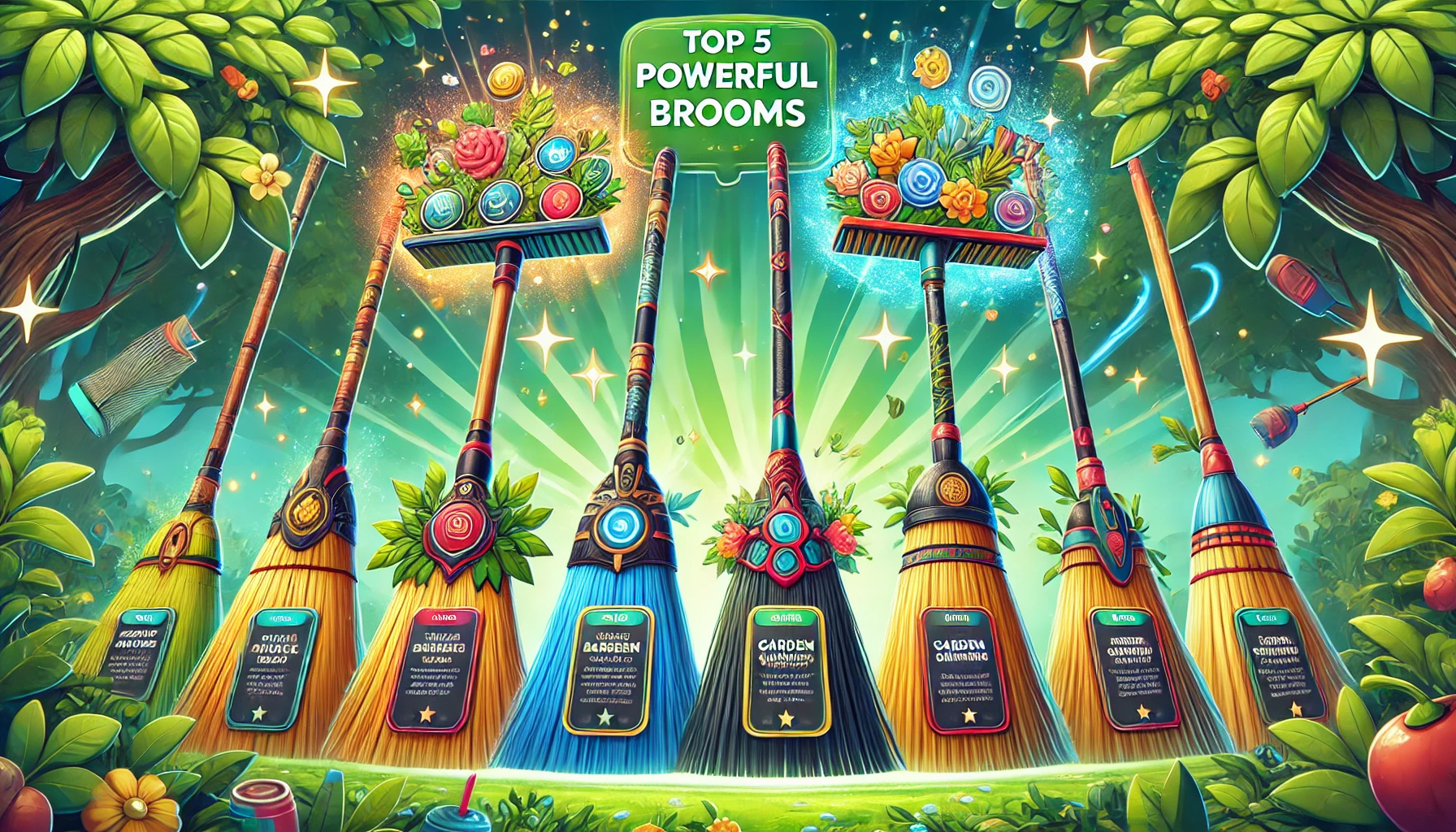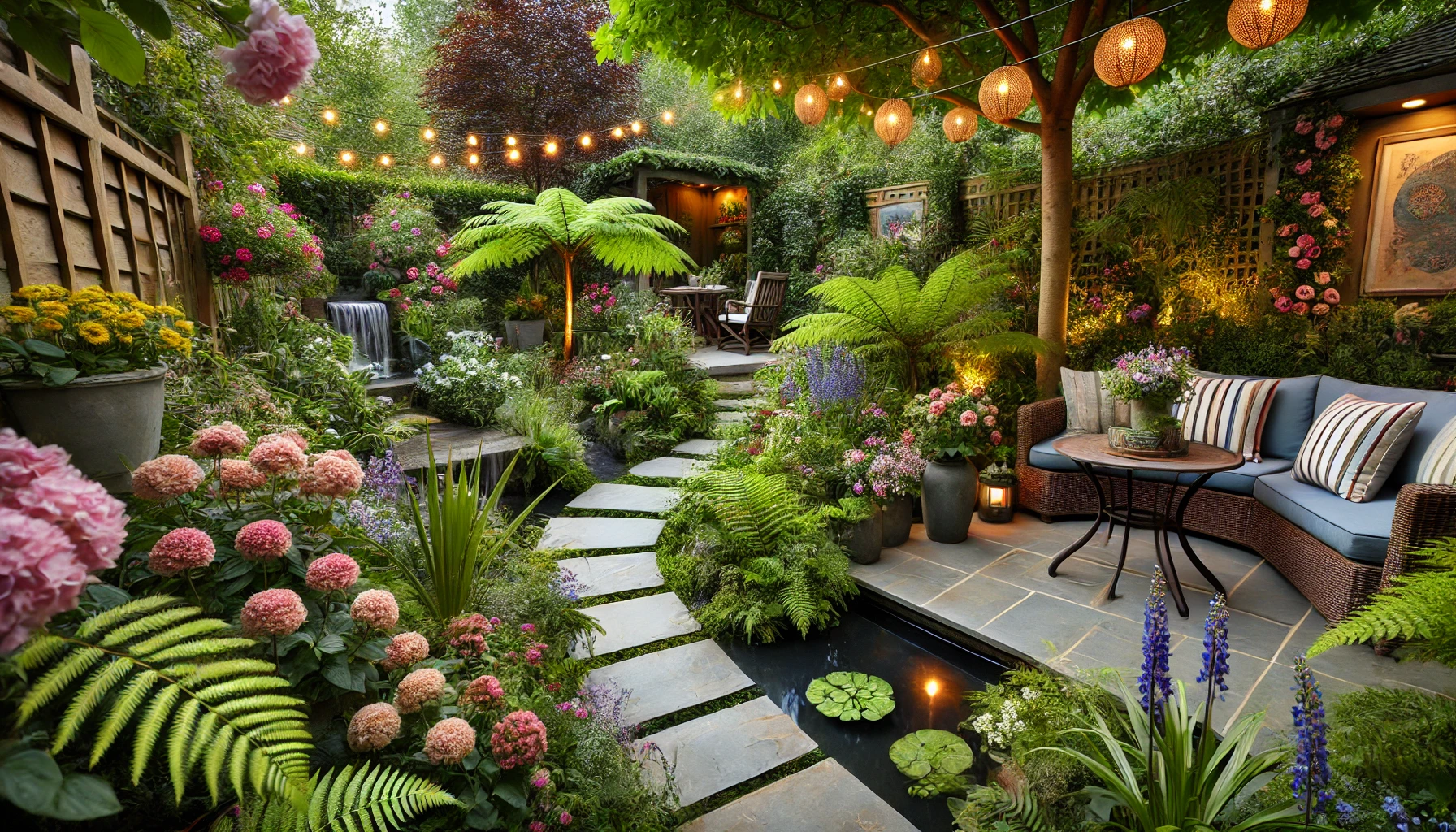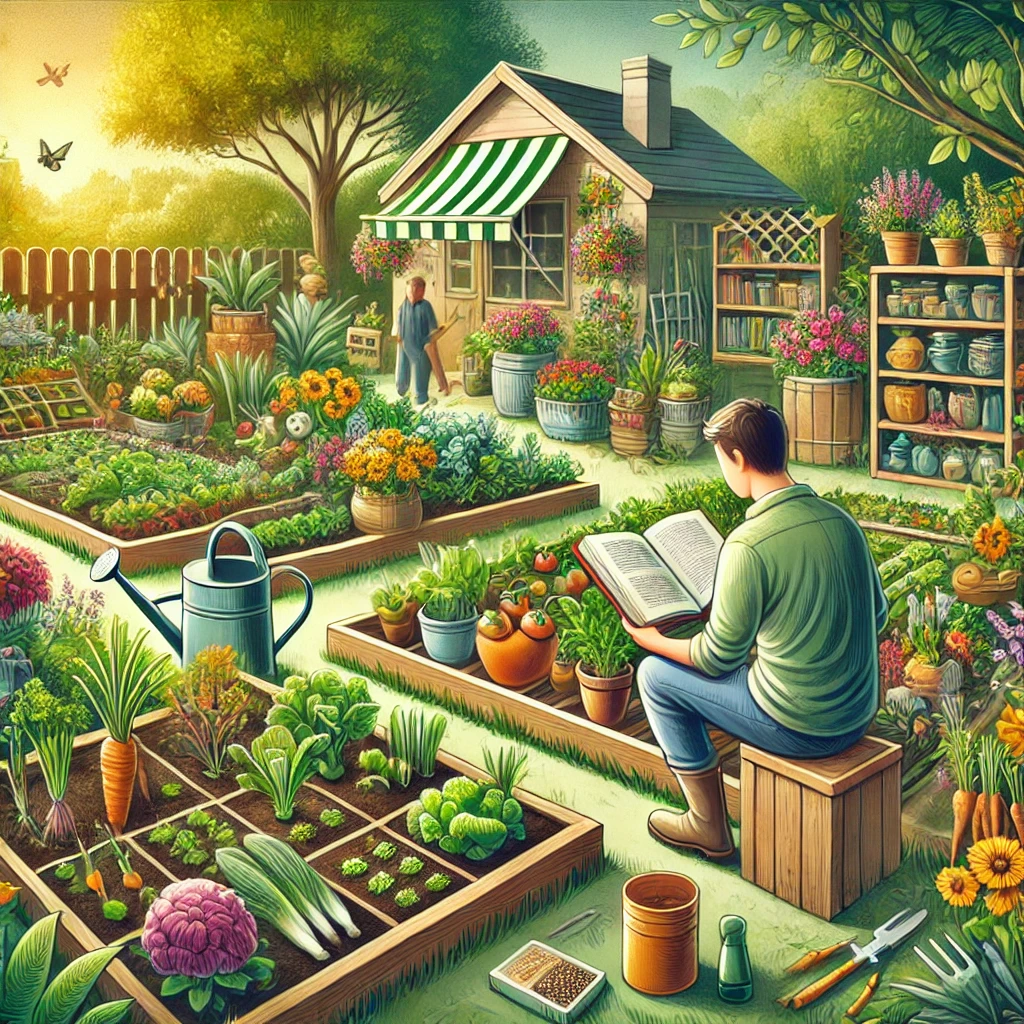
In an era where sustainability and self-sufficiency are increasingly becoming priorities, the importance of home gardening knowledge cannot be overstated. Whether you live in a sprawling suburban home or a compact urban apartment, cultivating your garden offers numerous benefits that extend beyond the aesthetics of a well-kept yard or the satisfaction of harvesting fresh produce. Understanding the basics of home gardening is essential for everyone, not just as a hobby, but as a vital life skill with wide-ranging implications for health, well-being, and the environment.
Table of Contents
1. Health and Well-being
Gardening is a natural way to enhance both physical and mental health. Engaging in regular gardening activities, such as planting, weeding, watering, and harvesting, provides moderate-intensity physical exercise that can help reduce the risk of chronic diseases, including heart disease, obesity, and diabetes. Moreover, gardening has been shown to lower stress levels, improve mood, and boost overall mental health. The act of nurturing plants fosters a sense of responsibility and achievement, leading to increased self-esteem and happiness.
Beyond the physical and mental benefits, home gardens can significantly improve dietary habits. Growing your own fruits, vegetables, and herbs encourages the consumption of fresh, nutrient-rich foods. These homegrown products are often more nutritious than store-bought counterparts because they can be harvested at their peak ripeness, preserving their vitamins and minerals. Additionally, home gardening reduces exposure to harmful pesticides and chemicals, promoting a healthier diet and lifestyle.
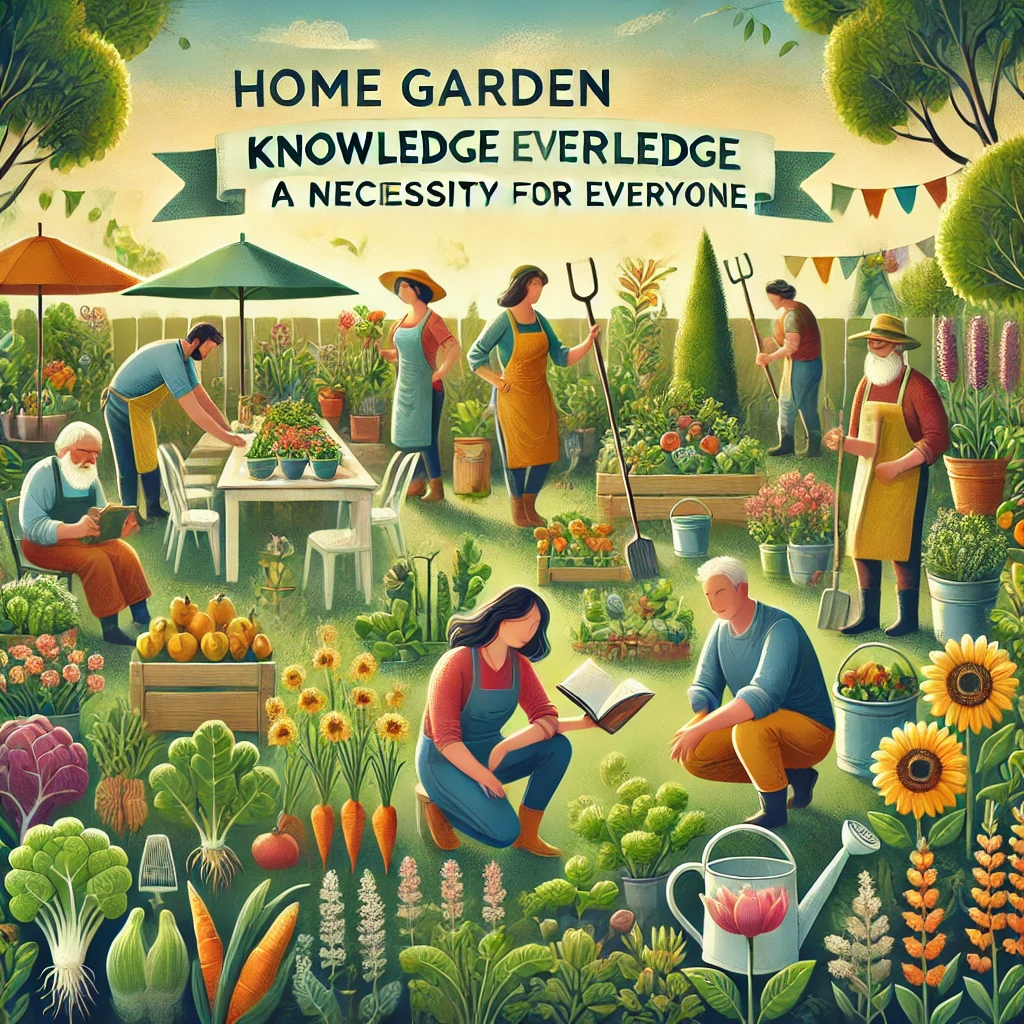
2. Environmental Impact
One of the most compelling reasons to acquire home gardening knowledge is the positive environmental impact. Home gardens contribute to reducing the carbon footprint in several ways. Firstly, they decrease the need for transportation and packaging associated with commercial produce, leading to lower greenhouse gas emissions. Secondly, gardens can be designed to support local biodiversity by attracting beneficial insects, birds, and other wildlife, creating a mini-ecosystem in your backyard.
Gardening also plays a critical role in conserving water and improving soil health. By implementing water-saving techniques like drip irrigation, mulching, and rainwater harvesting, gardeners can significantly reduce water usage. Moreover, composting kitchen scraps and garden waste creates nutrient-rich soil, reducing the need for chemical fertilizers that can leach into waterways and harm aquatic ecosystems.
3. Economic Savings and Food Security
In an unpredictable world, food security is becoming a growing concern for many. Home gardening provides a reliable source of fresh produce, reducing dependence on external food supply chains. This self-sufficiency is especially important during times of economic instability or in areas with limited access to fresh, affordable food. By growing your own vegetables, fruits, and herbs, you can cut down on grocery bills and enjoy a continuous supply of organic produce.
Moreover, the initial investment in seeds, soil, and gardening tools is relatively low compared to the long-term savings. Over time, as your gardening skills improve, you can expand your garden to produce a wider variety of crops, further increasing your savings. The knowledge gained from gardening can also be shared with others, fostering a community of self-reliant individuals who can support one another in times of need.
4. Educational Value and Lifelong Learning
Gardening is a hands-on learning experience that offers invaluable educational opportunities for people of all ages. For children, it is a fun and interactive way to learn about biology, ecology, and the importance of caring for the environment. They can observe the life cycle of plants, understand the role of pollinators, and learn about the importance of sustainability. This early exposure to gardening can instill a lifelong appreciation for nature and environmental stewardship.
For adults, gardening offers continuous learning opportunities. From understanding soil health and plant nutrition to experimenting with different gardening techniques, there is always something new to learn. Advanced gardening practices, such as permaculture, hydroponics, and organic gardening, challenge even experienced gardeners to expand their knowledge and skills. This lifelong learning aspect of gardening keeps the mind active and engaged, contributing to cognitive health as well.
5. Community Building and Social Connection
Gardening is a powerful tool for building community and fostering social connections. Community gardens, where individuals or families maintain plots within a shared space, are increasingly popular in urban areas. These gardens provide a place for people to come together, share knowledge, exchange produce, and support one another. They also offer a space for intergenerational learning, where older, more experienced gardeners can mentor younger ones.
Even in individual home gardens, the act of sharing surplus produce with neighbors or participating in local gardening clubs can strengthen social ties. Gardening creates a sense of community and belonging, as people bond over their shared love of nature and the common goal of producing fresh, healthy food.
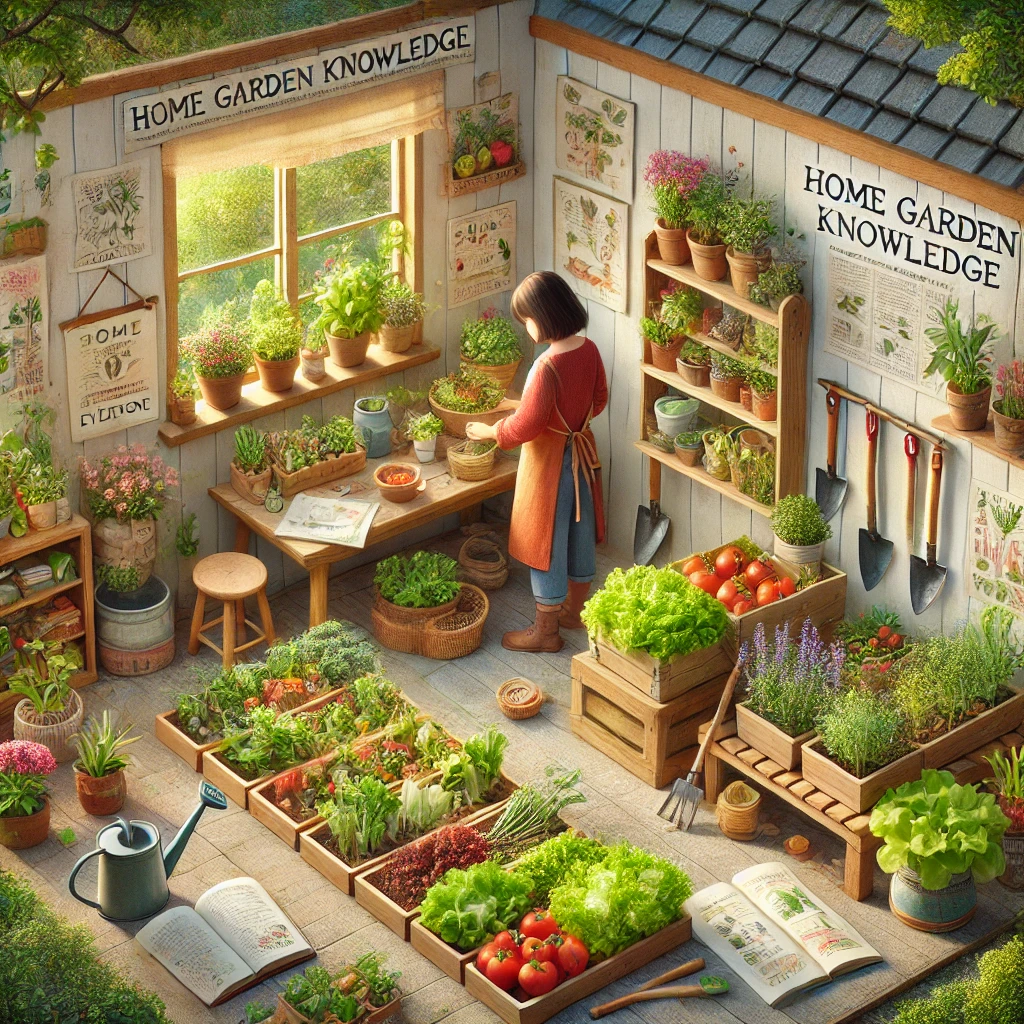
6. Aesthetic and Therapeutic Value
While the practical benefits of gardening are significant, the aesthetic and therapeutic value should not be overlooked. A well-maintained garden enhances the beauty of any home, adding to its curb appeal and creating a tranquil outdoor space for relaxation. The process of designing and nurturing a garden allows for creative expression, whether through the choice of plants, the arrangement of flower beds, or the incorporation of garden art.
Therapeutically, gardening is known for its calming effects. The repetitive tasks, the connection with nature, and the sensory experiences of gardening—such as the feel of soil, the scent of flowers, and the sound of rustling leaves—are all conducive to mindfulness and relaxation. For many, the garden becomes a sanctuary, a place to unwind, reflect, and find solace in the natural world.
Conclusion
Home gardening is much more than a hobby; it is a vital skill that offers numerous physical, mental, environmental, and economic benefits. In a world where sustainability and self-sufficiency are increasingly important, cultivating a garden is a step towards a healthier, more connected, and more resilient life. Whether you are a seasoned gardener or a beginner, the knowledge and skills you gain from gardening will enrich your life and contribute to the well-being of your community and the planet. Embracing home gardening is not just about growing plants—it’s about growing a better future for yourself and the world around you.

